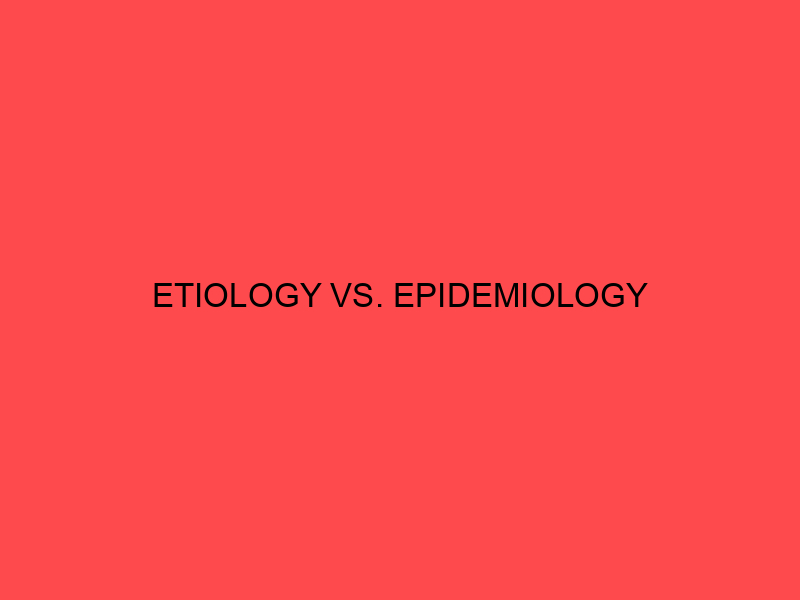Main Difference
The main difference between Etiology and Epidemiology is that the Etiology is a study of causation, or origination and Epidemiology is a study of the patterns, causes, and effects of health and disease conditions.
-
Etiology
Etiology (; alternatively aetiology or ætiology) is the study of causation, or origination. The word is derived from the Greek αἰτιολογία, aitiología, “giving a reason for” (αἰτία, aitía, “cause”; and -λογία, -logía). More completely, etiology is the study of the causes, origins, or reasons behind the way that things are, or the way they function, or it can refer to the causes themselves. The word is commonly used in medicine, (where it is a branch of medicine studying causes of diease) and in philosophy, but also in physics, psychology, government, geography, spatial analysis, theology, and biology, in reference to the causes or origins of various phenomena.
In the past, when many physical phenomena were not well understood or when histories were not recorded, myths often arose to provide etiologies. Thus, an etiological myth, or origin myth, is a myth that has arisen, been told over time or written to explain the origins of various social or natural phenomena. For example, Virgil’s Aenead is a national myth written to explain and glorify the origins of the Roman Empire. In theology, many religions have creation myths explaining the origins of the world or its relationship to believers.
-
Epidemiology
Epidemiology is the study and analysis of the distribution (who, when, and where) and determinants of health and disease conditions in defined populations.
It is the cornerstone of public health, and shapes policy decisions and evidence-based practice by identifying risk factors for disease and targets for preventive healthcare. Epidemiologists help with study design, collection, and statistical analysis of data, amend interpretation and dissemination of results (including peer review and occasional systematic review). Epidemiology has helped develop methodology used in clinical research, public health studies, and, to a lesser extent, basic research in the biological sciences.Major areas of epidemiological study include disease causation, transmission, outbreak investigation, disease surveillance, forensic epidemiology, occupational epidemiology, screening, biomonitoring, and comparisons of treatment effects such as in clinical trials. Epidemiologists rely on other scientific disciplines like biology to better understand disease processes, statistics to make efficient use of the data and draw appropriate conclusions, social sciences to better understand proximate and distal causes, and engineering for exposure assessment.
-
Etiology (noun)
standard spelling of aetiology
-
Epidemiology (noun)
The branch of a science dealing with the spread and control of diseases, viruses, concepts etc. throughout populations or systems.
-
Epidemiology (noun)
The epidemiological body of knowledge about a particular thing.
-
Epidemiology (noun)
the branch of medicine which deals with the incidence, distribution, and possible control of diseases and other factors relating to health.

